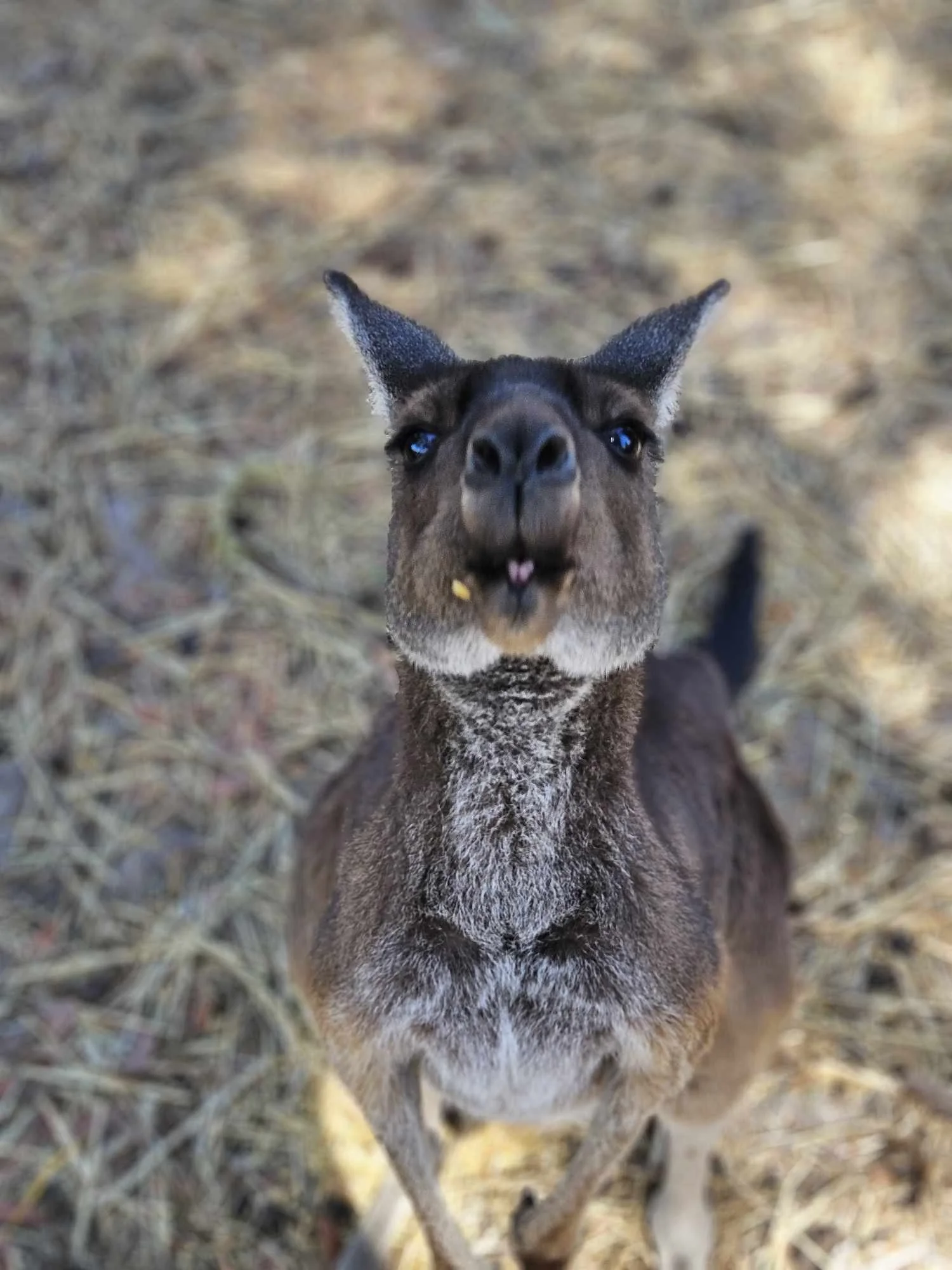When Did Compassion Become Controversial?
There’s been a lot of media attention lately on the slaughter of kangaroos—finally. Big-name sports brands are stepping away from kangaroo leather, and advocates like Wayne Pacelle and his team are shining a light on the cruelty behind the commercial culling industry. It should feel like progress. And in many ways, it is.
But here’s the part that’s harder to talk about: the backlash.
When I comment on these stories—whether it’s a respectful question to a news outlet or a gentle challenge to a company selling kangaroo pet meat—I’m often met with abuse. Not disagreement. Not debate. Abuse. And I’m not alone. Other carers and advocates are facing the same thing. Slurs. Mockery. Slander. And worst of all, applause from bystanders who seem to revel in the cruelty.
My last comment was on a Channel 10 news report that described kangaroos as “beautiful animals.” while a kangaroo shooter was wielding his gun across the screen, in front of my face and calling them vermin, I asked, simply, “If they’re beautiful, why are we killing them?” The response?
“Animal libtardism is nothing but first world privileged white female virtue-signalling. Thanks for the evidence.”
I’m still not sure what that even means. But I know it wasn’t kind.
When did it become okay to attack people for caring? For asking questions? For trying to protect the very animals that define our landscape and identity?
And here’s what often gets left out of these conversations: how deeply this cruelty can affect those of us doing this work on the ground.
The carers who are already carrying the emotional toll of trauma, grief, and isolation. The ones getting up at 3am to feed an orphaned joey or holding space for a dying roo so it doesn’t leave this world alone. For them—for us—this online abuse isn’t just upsetting. It’s dangerous.
Over time, the slander, mockery, and name-calling can lead to withdrawal, despair, self-harm, and even suicidal thoughts. Not because we’re weak—but because we’re human. Because being bombarded with cruelty while trying to bring kindness into the world chips away at even the strongest among us.
And so, when we call out brands, companies, and government departments, we do so respectfully. But we also do so at a cost. A cost that too many don’t see, or worse—choose to ignore.
We’re not shouting. We’re not threatening. We’re calling out brands, companies, and government departments in a respectful way. We’re asking for accountability. For compassion. For change.
And yet, the cruelty isn’t just in the killing—it’s in the way people respond to those who dare to speak up.
So here’s my musing: maybe the real discomfort isn’t about kangaroos. Maybe it’s about what they represent. Vulnerability. Innocence. The parts of ourselves we’ve learned to suppress in a world that rewards detachment and desentisation.
But I won’t stop speaking. And I know others won’t either. Because silence is complicity. And these beautiful animals deserve more than that.
Change the Narrative
It’s time we stop treating kangaroos as intruders in their own home—and stop treating compassion like a crime. Their visibility isn’t a sign of thriving populations; it’s a sign of displacement, of survival under pressure. The land they once roamed freely is now fragmented and fenced, burnt and built upon.
Instead of asking, “Why are there so many kangaroos?”—let’s start asking, “What happened to their habitat?” Instead of reacting with annoyance, let’s respond with empathy.
We have the power to change this narrative. To see kangaroos not as pests, but as fellow beings pushed to the edge. And to support the people trying to make their lives better—not tear them down.
That shift begins not with policy or protest, but with compassion—and a willingness to understand what’s really going on.
Their story is unfolding in front of us. Let’s make sure it’s one of coexistence, not conflict.
So I asked AI what it meant. The translation
That comment is a mash-up of insults and political buzzwords, and while it’s clearly meant to be derogatory, it’s also a bit of a word salad. Let’s break it down:
“Animal libtardism”: A slur combining “animal rights” and “libtard” (a derogatory term for liberals). It’s used to mock people who advocate for animal welfare, implying they’re irrational or overly emotional.
“First world privileged white female”: This part tries to discredit the speaker by suggesting they’re out of touch with “real” issues because they’re from a wealthy country, are white, and female—implying that their compassion is a luxury, not a necessity.
“Virtue-signalling”: A common accusation that someone is only expressing moral concern to look good or gain social approval, rather than because they genuinely care.
So, in essence, the person is saying: “You’re only pretending to care about kangaroos to feel morally superior, and you’re doing it from a place of privilege.” It’s not a thoughtful critique—it’s a way to shut down conversation and avoid engaging with the actual issue.
But here’s the thing: calling out cruelty isn’t virtue-signalling. It’s courage. And when someone responds with mockery instead of reflection, it often says more about their discomfort than your sincerity.

